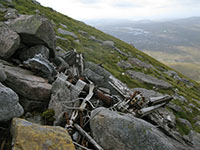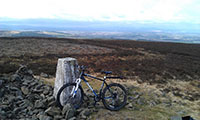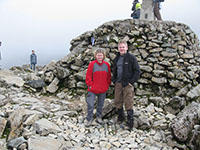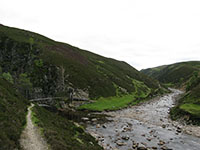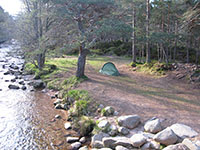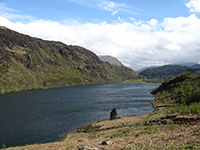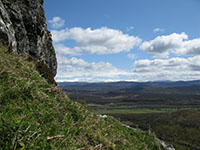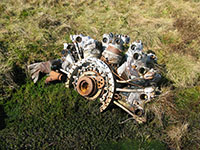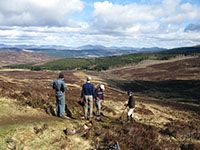Three weeks ago whilst staying for a week in nearby Kinlochbervie, I climbed the 801m Corbett summit of Cranstackie in Sutherland. Cranstackie (along with its neighbouring Corbett summit of Beinn Spionnaidh) is the most northerly mountain (if you count a mountain as being above the Corbett height of 762m) in the British Isles, and Sutherland is a very dramatic and remote landscape.
The summit itself is not too far from the A838 road though, so it is fairly accessible. The route of ascent I took up the head of Calbhach Coire to the bealach between the two summits was up a fairly steep and bouldery slope. I had good views on the bealach eastwards to Ben Hope. The final 100m of ascent to the summit of Cranstackie is a boulderfield requiring some attention.
Unfortunately I was above the cloudbase on the summit so there was no views, but this was the only day of the whole week I spent in Sutherland without heavy rain and high winds.
I descended from the summit by a slightly different route, traversing along the northern slopes of Cranstackie. This was so I could investigate the site of a RAF Mosquito bomber that crashed here in 1943.
The main debris field of the Mosquito wreck site is quite compact with a large amount of wreckage, although all pieces of wreckage are small, indicating the severity of the impact. Pieces of undercarriage and some engine parts are recognisable (see photo above), and several pieces of the Mosquito’s wooden components survive. The largest piece of wreckage is a section of the rear elevator. There are also a few pieces of wreckage lower down the hill in Calbhach Coire.
You can see my page about this wreck site on my website here.
